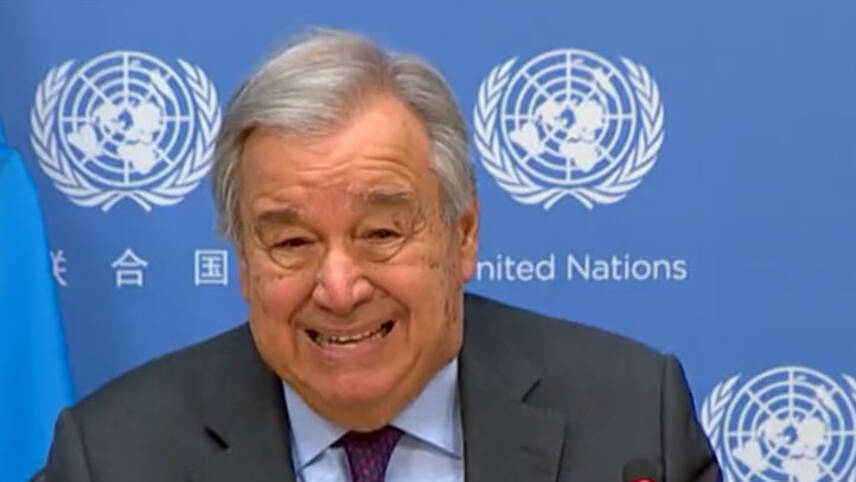Register for free and continue reading
Join our growing army of changemakers and get unlimited access to our premium content

Pictured: Antonio Guterres
Ministers and negotiators had gathered in their hundreds in Bonn between 5 and 15 June, for intersessional UN climate talks that will set the scene for COP28 in Dubai this winter.
Observers noted that there was not a particularly strong display of ambition. Developed and emerging economies alike used the current economic outlook as a reason not to increase international climate spending. The EU was a stand-out voice in combatting this narrative, while some of the most affected countries continued to press for more finance.
Responding to this narrative, the UN’s executive secretary for climate change, Simon Stiell, said: “Climate change is not a North versus South issue. It is a tidal wave that does not discriminate. The only way we can avoid being swallowed by it is by investing in climate action.
“All national budgets are constrained, but this is not a question about prudent spending. Make it your mission to highlight this to your treasuries and cabinets. We will simply fail at our task if we do not change the conversation about finance at every moment between now and the COP.”
Earlier this month, Oxfam stated that wealthy spent just $24.5bn on international climate finance in 2020, despite pledging $100bn a year. The NGO accused nations over over-stating their commitments, badging existing aid funding for non-climate-related projects as contributing to the $100bn.
The $100bn commitment was first floated in 2009 and ratified in 2015. Nations had pledged to get on track in 2023 during Covid-19 lockdowns.
At a summit in Paris next week, a new global financing pact will be discussed. Beyond getting on track for the $100bn from public coffers, the focus will be on tapping into private finance.
Watered-down language
Beyond the lack of ambition shown on finance, observers noted that rowing persisted around how the UN should word agreements relating to the energy transition and the reduction of greenhouse gas emissions.
This was the case at the last COP, in Egypt late last year. Nations including Saudi Arabia advocated a “phase down”, not a “phase out”, of fossil fuels. The former also pushed for an agreement that would enable oil and gas exporters to invest in carbon capture instead of clean energy.
UN Secretary-General Antonio Guterres vocally opposed this narrative.
He said: “The problem is not simply fossil fuel emissions – it is fossil fuels, period. Countries must progressively phase them out and massively boost renewable investments.”
He also noted that the COP28 presidency’s ties to the fossil fuel sector were undermining trust in the COP process. The UAE has selected its minister for industry and technology Sultan Ahmed Al Jaber as president for COP28. He is also the chief executive of the state-owned Abu Dhabi National Oil Corporation and there are fears that Corporation workers are now privy to private messages about the summit.
Guterres said: “Current policies are taking the world to a 2.8C temperature rise by the end of the century. That spells catastrophe. Yet the collective response remains pitiful.
He accused nations seeking to weaken COP texts of relying on “wishful thinking and unproven technologies”. He also said the COP process is facing increasing scrutiny in terms of “clarity and credibility”.
Ahead of COP28, which begins on 30 November, the UN will host a new additional summit in September. Nations will be asked to put forward “credible, serious and new” plans aligned with the Paris Agreement.


Did he expect MORE?!!